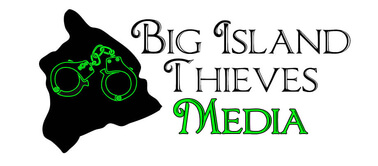Community leaders, students, elected officials and local residents held a blessing in Puna on Wednesday, July 3 to honor the newly named Waiakahi‘ula Beach Park.
The County of Hawai‘i recently changed the park’s name from Kahakai Park to Waiakahi‘ula Beach Park to honor the original place name and the rich cultural history of the area. The park contains remnants of the ancient Hawaiian village of Waiakahi‘ula, including a well-preserved canoe shed, foundations of a house and various agricultural sites.
Waiakahi‘ula, means “the place where the water runs red,” which comes from cascading streams along the area’s cliffs that take on a reddish hue during the season of Ho‘oilo—Hawai‘i’s rainy season, which spans from November to April.
The event Wednesday featured a kipaepae ceremony led by Hawai‘i Community College I Ola Hāloa Center for Hawai‘i Lifestyles; speeches; a lu‘au-style lunch; and a ho‘ike, or demonstration of learning, by students from Pāhoa High School’s ʻAha Lamakū ʻOiaʻiʻo (ALO) program. During their summer program, the ALO students compiled historical information about Waiakahi‘ula, which the County of Hawai‘i Department of Parks & Recreation will use to create interpretive signage that describes the history of the area.
The initiative to change the park’s name began last year after two local educators who grew up in the Waiakahi‘ula area, Leah Gouker and No‘eau Woo-O‘Brien, discovered a 1974 survey that led them to the park’s archaeological features. In their efforts to enact the name change, they received support from the Department of Parks & Recreation, as well as County Council Member Ashley Kierkiewicz, who introduced a bill to change the park’s name. The Hawai‘i County Council passed the bill in March following testimony submitted by the ALO students.
“I wholeheartedly believe that the return of the name Waiakahiʻula will also trigger a return of Hawaiian identity and pride to this very space,” said Woo-O’Brien, an instructor at the Hawai‘i Community College I Ola Hāloa Center for Hawai‘i Lifestyles. “There has been a growing shift of consciousness and appreciation regarding things Hawaiian, and I believe this name change is an extension of that shift.”



